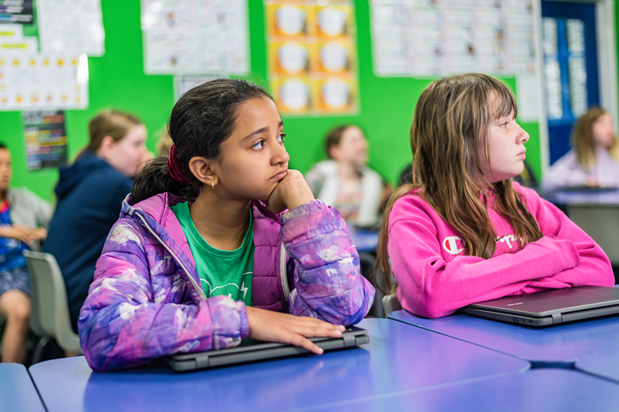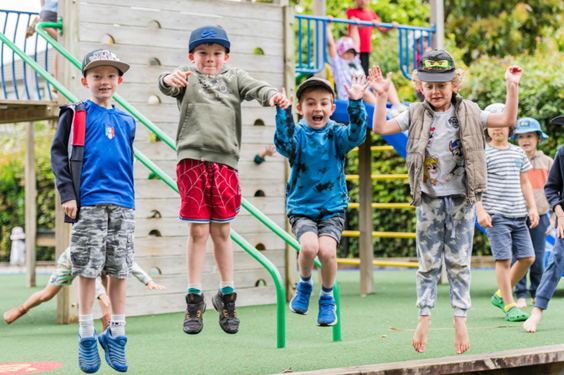What reality tv teaches us about feedback - and what we need to do about it
By Megan Peterson on August 8, 2025 in Assessment
How is reality TV shaping students’ views on feedback - and what can educators do about it?
The judges are lined up, the contestants stand a suitable distance away, and the host hovers on the edge - connected, yet detached. The tension is palpable. The camera cuts from face to face. Something big is about to happen.
One judge opens their mouth, and a list of pros and cons spills out. The contestant crosses their arms, their mouth tightening into a grimace. A dramatic pause. Then, the sound effect - perhaps a heartbeat, an eerie violin, or a low, off-key piano chord - heightens the suspense.
The explosion follows. "You're wrong! You don’t know what you’re on about! I’m proud of my work, and I don’t care what you think!" Or, alternatively, a single tear escapes, the contestant turns away, and, too overcome to speak, walks off set. A post-meltdown interview follows, where they either continue their tirade or vow to persist, undeterred by the "harsh" critique.
This scenario plays out across reality challenge shows of all kinds - cooking, home improvement, fashion, singing, beauty, tattooing. In New Zealand, these are among the highest-rated TV shows.
As educators, it’s worth asking: What might our students be learning about feedback from these shows?
When feedback is portrayed as a dramatic, high-stakes confrontation, how does that shape how young people give and receive feedback in the classroom? If these moments of tension are what they see in entertainment, how do we ensure they develop the necessary skills to engage with feedback productively in their learning - and later, in the workplace and beyond?

Helping students give and receive feedback effectively
For feedback to be meaningful and useful, students need to experience it as a constructive process rather than a judgment. As educators, we can help them develop the mindset and skills needed for effective feedback by embedding these principles into our teaching practice:
Encourage students to seek feedback - The most valuable feedback comes when students actively seek it out. Encouraging students to ask for feedback—rather than passively receiving it—builds ownership of their learning.
Make feedback a two-way conversation - In reality shows, feedback is often delivered in one direction: from the judge to the contestant. In learning, feedback should be a conversation. Students need to be able to ask questions, clarify understanding, and respond thoughtfully.
Integrate feedback throughout the process - Too often, students see feedback as something that happens only at the conclusion of a task. In reality, the most effective feedback happens throughout the learning process, helping students make adjustments and improve before they reach the final product.

Provide students with the skills to give feedback - Learning to provide constructive, targeted feedback is just as important as learning how to receive feedback. Peer feedback can be a powerful way to develop this skill, helping students articulate their thinking, analyse quality, and support others' progress.
Connect feedback to clear criteria - In a reality show, contestants often argue with judges because they don’t share the same expectations. In the classroom, clear success criteria help students understand the purpose of feedback and how it connects to their learning goals.
Use feedback to close the gap - Effective feedback provides students with specific guidance on how to move from their current level of performance to where they want to be. It should focus on actions they can take to improve.
Foster agency and self-regulation - Ultimately, students need to develop the ability to assess their own work and take action based on feedback. When students internalise the process of evaluating their own progress, they become independent, lifelong learners.
Beyond the classroom: feedback as a life skill
The way students engage with feedback in school shapes how they will experience it in the workplace and in all other areas of their life. Whether they are university students receiving academic critique, employees being coached on job performance, or professionals giving feedback to colleagues, their ability to engage productively with feedback will determine how they grow and succeed.
If the dominant model of feedback they see and hear is dramatic, high-stakes, and adversarial, they may struggle to respond constructively to critique - or to give useful feedback themselves.
As educators, we have a role to play in shifting this perception. We can model feedback as a tool for learning, not as a moment of judgment. We can create classroom cultures where feedback is valued, normalised, and part of an ongoing dialogue.
What if the way we teach students to use feedback today is the key to unlocking their success tomorrow?
Want to take feedback practices in your school to the next level? Our experienced education consultants can work alongside you to build a culture where ākonga confidently use feedback to drive their own learning. Whether you're looking to refine your current approaches or implement new strategies, we're here to help.
Get in touch today - we'd love to partner with you to make learning-focused feedback a powerful part of your classroom practice.
Other articles you might like
This blog describes how one secondary school is enacting the mantra that ‘every teacher is a teacher of literacy’.
I, for one, am heartened by imminent changes to the NCEA literacy assessment requirements. I’ve always been uneasy about the current expansive pathway, with hundreds of tagged achievement standards from a wide range of subjects, most of which assess content knowledge, with no literacy-specific criteria.
Where to start? What and how much do we need? Questions schools are asking about Literacy support.
